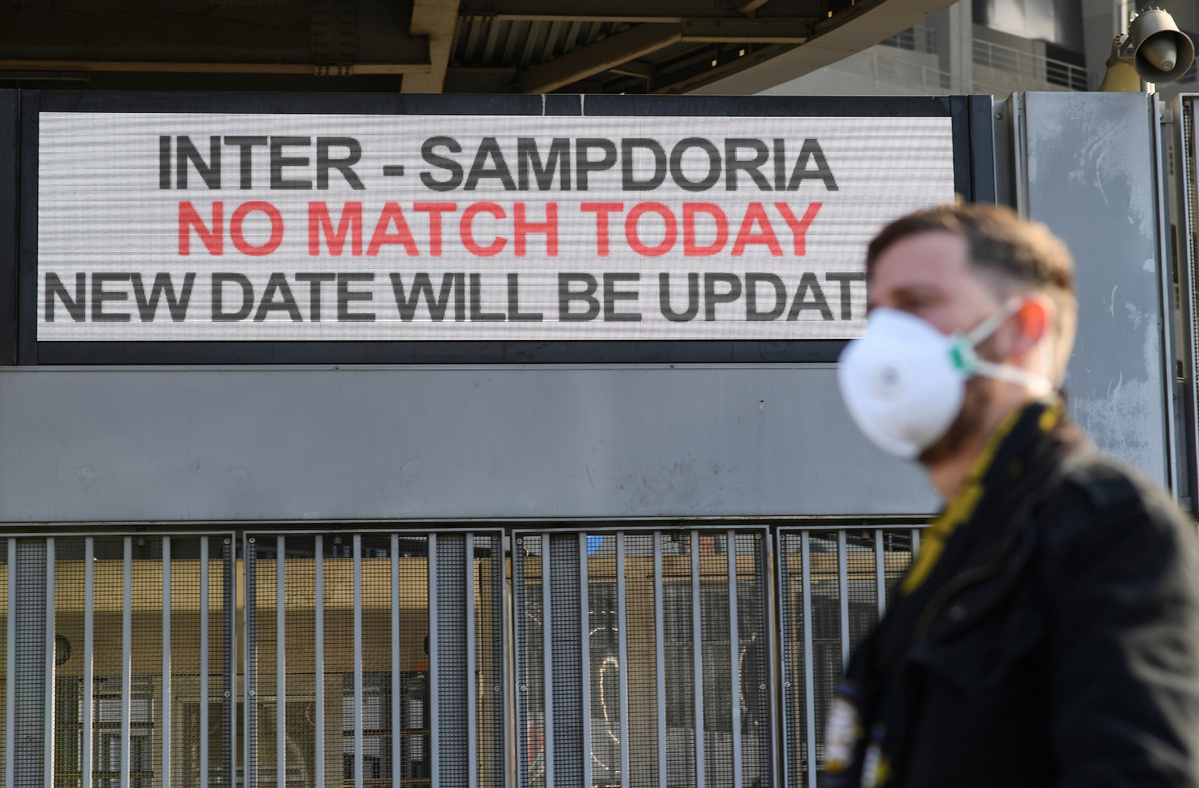Italian COVID-19 cases mount amid lockdown and sporting cancellations


The Venice Carnival has been cut short and football matches postponed as Italian officials race to contain Europe's worst outbreak of the COVID-19 coronavirus.
While the UK announced that four repatriated cruise ship passengers had the virus, bringing the UK total to 13 cases, Italy has by far the most cases in Europe, with numbers of confirmed cases rising to 152 by 18:00 GMT on Sunday - including three fatalities. That is up from nine confirmed cases as recently as Friday.
Quarantine restrictions have now been imposed on two particularly affected northern regions of Italy: Lombardy, of which the capital is Milan, and Veneto, whose capital is Venice. Across several towns in those regions, around 50,000 people are now on lockdown and cannot leave the area for the next two weeks without specific permission.
The disruption is not limited to the quarantined areas. Elsewhere in northern Italy, many businesses and schools have announced temporary closures. Also affected is the football, with several matches postponed, from top-league Serie A games in Milan, Turin, Bergamo and Verona to lower-division games - plus the AC Milan women's team fixture and Italy v Scotland in the rugby Women's Six Nations, which was due to take place on Sunday near Milan.
Most of the cases in Italy are in Lombardy and can be traced back to a 38-year-old man whom authorities have called "patient one." But health officials are puzzled over some cases with no obvious links with infected persons.
World Health Organization spokesman Tarik Jasarevic said: "The rapid increase in reported cases in Italy over the past two days is of concern.
"What is also worrying is that not all reported cases seem to have clear epidemiological links, such as travel history to China or contact with a confirmed case."
Experts from WHO and the European Centre for Disease Prevention and Control plan to arrive in Italy on Tuesday, he said.
The Venice Carnival, which dates back more than 850 years, is attended by up to three million celebrants a year, most of whom wear elegant masks of the kind originally designed to preserve the anonymity of upper-class attendants.
It is particularly strongly linked with the Renaissance period; although its origins are religious - it is timed to end with the beginning of Lent, the 40-day period leading up to Easter - it has latterly also become a celebration of the lagoon city's immense cultural heritage.
Now, though, the carnival will be cut short. It was due to end on Tuesday, as Lent begins on Wednesday, but authorities have enforced an early ending on Sunday night as Italy struggles to contain the coronavirus. For this year, the elegant masks of celebration will be replaced by the surgical masks of necessity.
































